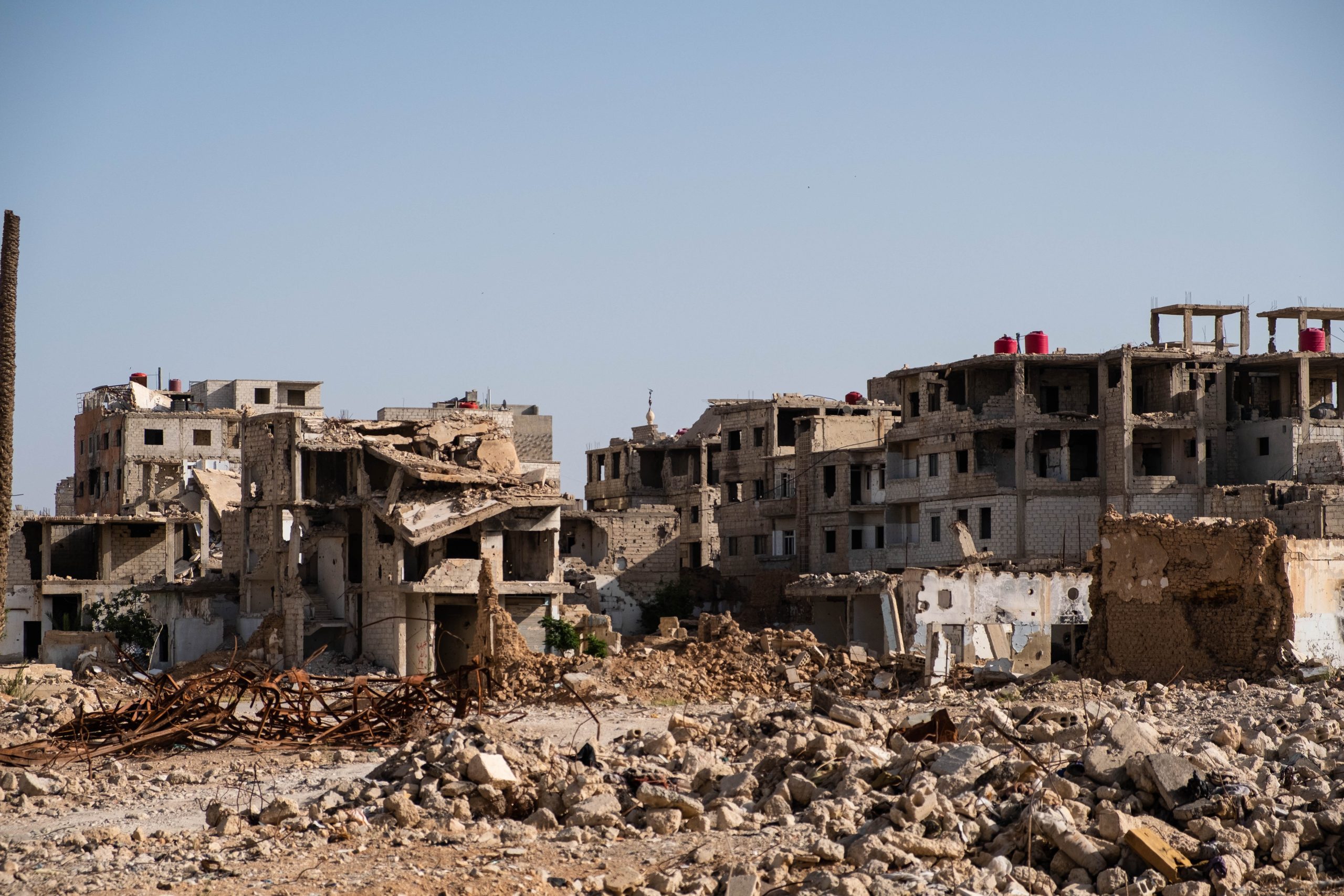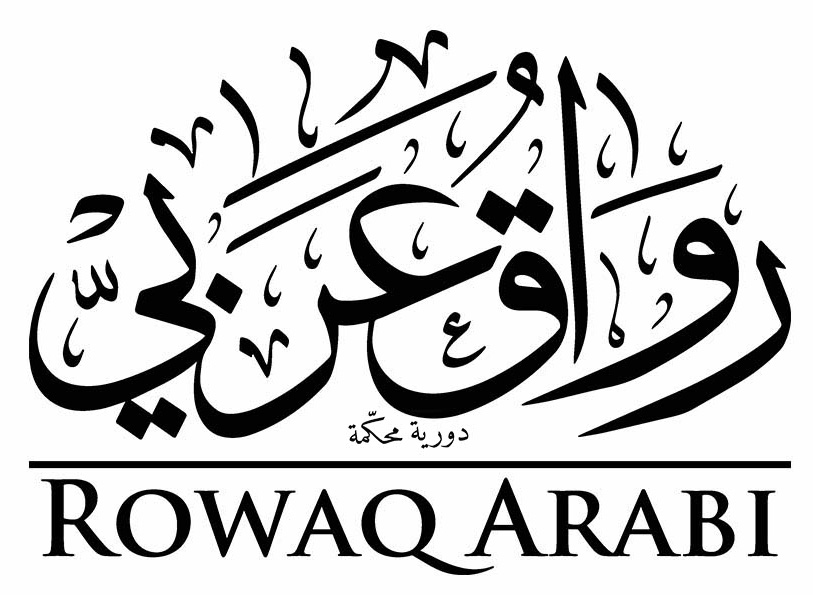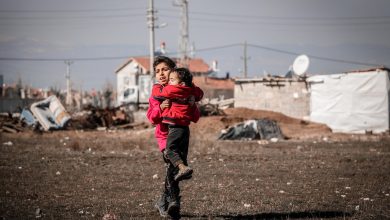Views: Opportunities for Advancing Human Rights After the Arab Uprisings, Between Confrontation and Dialogue

Citation: Alhamad, Jalal (2024) ‘Views: Opportunities for Advancing Human Rights After the Arab Uprisings, Between Confrontation and Dialogue’, Rowaq Arabi 29 (3), pp. 29-40, DOI: 10.53833/NRRX3939.
The Arab uprisings raised two questions about human rights: [1] first, how to address the legacy of widespread violations committed by authoritarian regimes in the Arab region; and second, how to establish a preventive legal framework to safeguard human rights and prevent future violations.
According to the United Nations, ‘Human rights are rights inherent to all human beings, regardless of their nationality, (place of residence), sex, ethnicity, colour, religion, language, or any other status.’[2] This is consistent with UNESCO’s definition of human rights, which states that ‘Human beings are born equal in dignity and rights. These are moral claims that are inalienable and inherent in all human individuals by virtue of their humanity alone. These claims are articulated and formulated in what today we call human rights, and have been translated into legal rights, established according to the law-creating processes of societies, both on the national and international level. The basis of these legal rights is the consent of the governed, that is the consent of the subjects of the rights.’[3]
Alsayed Fouda defines human rights as ‘those rights that a person enjoys simply by being human, and these rights are recognized for the individual regardless of their nationality, religion, ethnic or national origin, or social or economic status. They are natural rights that a person possesses even before becoming a member of any particular society; they precede the state and transcend it.’[4]
Human rights, then, are those natural rights that humans enjoy simply by being born, and they do not depend on being granted or legislated by any authority. Karim Al-Sayyad defines the inherent right as ‘a human right, by virtue of being human, a right that is inherent in human nature itself, irrespective of any legislation from a divine or human authority.’[5] According to Al-Sayyad, natural rights ‘cannot be negotiated or waived by their very nature; Rather, renouncing them leads to harm to both the public and private interests.’[6]
The anti-democratic waves following the Arab uprisings, which sought to suppress the growing calls for change, represented a setback for the efforts of human rights movements and Arab democratic forces in shaping the future of human rights in the region. These waves were joined by human rights and political forces from diverse backgrounds, driven by political or ideological motives, thus distancing themselves from the core principles of human rights and granting moral and political legitimacy to the political regimes created by the counterrevolutions. However, the counter waves –contrary to what is desired– have contributed to expanding the scope of research on human rights issues, which have become one of the ways out of the crises that have swept through Arab countries. The Arab uprisings, despite the period of regression, present an opportunity to highlight the importance of the concept of human rights in the Arab region, potentially making it one of the key pathways to liberation, and perhaps the only one.
This article provides a comprehensive overview of how human rights issues are addressed in the Arab region and how this hinders the progress of the human rights movement or its ability to gain the trust of the Arab public. It highlights the impact of local culture in shaping this attitude and reviews the changes in the Arab public’s stance after the Arab uprisings, along with the contributing circumstances, despite the persecution faced by the pro-democracy movement. The article concludes with a proposed course of action for human rights advocacy groups.
The article primarily focuses on the Syrian case study, both due to the author’s expertise and because it highlights the ongoing conflict between human rights defenders and their opponents. Cases from other Arab countries are also drawn upon, offering insights based on their experiences following the uprisings. Nevertheless, the article would likely require significant modifications if applied to other Arab contexts.
A Stereotypical Stance: Challenges in Mainstreaming Human Rights
There is a stereotypical, common stance towards human rights and human rights movements that rejects human rights on the basis of their Western origin or due to the policies of Western countries in the Arab region and their interference, through military or economic means in the internal affairs of Arab countries. This is compounded by discriminatory measures against migrants in several European countries, especially with the increasing waves of migration over the past decade.
Suspicion of Arab human rights work
In 2022, during one of the projects on the right to political and civil participation implemented by the Justice for Life Organisation in Syria, where I hold the position of Executive Director, one of the participants explained her refusal to continue attending, believing that the project would not achieve effective change on an individual or community level and that continuing to participate in it would be a waste of time.
It is worth mentioning that the project was built on research efforts that reflected the needs and demands of the local community in the project area to expand discussion on political rights, with hope of incorporating and respecting them in local laws. In the same context, the implementation of the project coincided with a local/tribal rebellion against the military group controlling the project area, raising popular demands that aligned with the project’s goals.
This stance does not represent a passing or individual case but rather reflects the limits of the imagined space for human rights movements, within which these movements are not allowed to play a leading role. The maximum involvement they can have is to use their human and financial resources to assist the parties most capable of representation. This position is fundamentally based on viewing human rights as a foreign concept aimed at undermining the values of local societies, especially their religious values, with human rights movements being seen as pliable tools for implementing these goals.
While tribal, religious, and sectarian alliances enjoy the trust of local communities in the Arab region, as they are perceived as the most capable of representing them, human rights movements lack this trust. In this context, Abdelazeem Hanafi says: ‘There are social arrangements that form obstacles to human rights, the most important of which are the concepts of family, tribe, sect, and regional loyalties, which interact in a distinctive dynamic with traditional patriarchy, or its modern forms as manifested by the state and its leaders.’[7]
Western foreign policies
In the Arab world, the concept of human rights is inextricably linked to Western policies toward the region. Many Western countries are accused of manipulating the concept of human rights to serve their political agendas. Over the past two decades, actions taken by Western states have directly caused death and displacement, such as the U.S. invasion of Iraq in 2003, or indirectly, through the justification and cover up of international law violations, as seen in the unwavering political and financial support for Israel’s occupation of Palestinian territories and settlement expansion. In this context, the recent war in Gaza has reinforced negative perceptions of Western interventions. The positions of key countries, such as the United States, France, and Germany—especially during the early days of the war—justified the bombing of densely populated civilian areas and failed to make sufficient efforts to broker a ceasefire and protect civilians. The ongoing Western support for Arab regimes and their repressive measures against demands for democratic change, as in Tunisia and Libya,[8] further fuels these perceptions. Additionally, economic sanctions, which often impoverish targeted populations, have been a point of criticism, as seen in Iraq after the Second Gulf War and in Syria today.[9]
This connection does not stop at direct intervention in Arab affairs, but extends to the positions of Western countries, which have been seen as discriminatory towards the peoples of the region and their religious and cultural symbols. This includes, for example, the decisions of authorities in several European countries to ban the wearing of religious symbols in public institutions and workplaces[10], a decision widely perceived as specifically targeting the Islamic headscarf due to its significance to Muslim followers, in comparison to the religious attire worn by followers of other faiths, as well as the offensive caricatures of certain Islamic symbols that have appeared in numerous newspapers across Europe. This correlation also extends to the Western stance on the Russian Ukrainian war, where Western countries swiftly provided military and financial support to Ukraine, while Arab countries received little attention during a decade of ongoing conflicts. Furthermore, several European countries have implemented discriminatory[11] measures that differentiate between European refugees and those from other regions.
All the above has raised, and continues to raise, pressing questions about the West’s selective approach to human rights—prioritising specific rights over others and discriminating in the granting and defence of rights based on origin. This selective treatment is often perceived as hostility toward the peoples of the region and their cultural specificities. These concerns remain deeply ingrained in the minds of citizens and are frequently cited by critics of human rights defenders in the Arab region.
Cultural specificity
The efforts of the Arab human rights movement face rejection from multiple parties with diverse backgrounds, including forces known for their opposition to authoritarian regimes. About these forces, Dr. Abdullah Al-Hamid says: ‘Many elites supported the state’s authoritarianism in the name of enforcing modernity, only to find themselves, in the end, filled with regret after backing the one-party state, when corruption obliterated the project they had long championed and theorized.’ [12]
This rejection is based on the concept of cultural specificity, and from it, the applicability of human rights principles in the Arab region is challenged, with the principle of universality at the forefront. [13] According to this concept, human rights originated in societies that differ in their culture and historical context, and by their very nature, they meet the needs of those societies. The use of the principle of universality to impose human rights on other societies is merely a form of Western hegemony. The prevailing rejection of human rights, under the pretext of cultural specificity, lacks a local theory that addresses the new global reality based on respecting human rights principles. Therefore, the only explanation for this specificity is the entrenchment of discrimination between citizens, legitimising the violations committed against them, and nullifying any efforts to review the positions and theories upon which the negative stance on human rights is based.
In practice, the insistence on cultural specificity is used to justify numerous violations against women and religious and ethnic minorities,[14] and against cultural rights [15]. It also justifies the repression of political and civil freedoms, such as freedom of expression, belief, and media freedom[16], and provides justification for eliminating political opponents[17] and human rights activists. At the same time, those who reject human rights do not bother to explore the essence of human rights principles, the goal which, as described by Karim Al-Sayyad, is to ‘form a global conscience where there is no room for discussing cultural specificities.’ [18]
The Impact of the Arab Uprisings: Dismantling Stereotypes
The political, social, and economic crises in the Arab world after the revolutions and counter-revolutions have left contradictory positions on human rights. The issue of prioritising individual rights over other rights and major issues has resurfaced. The peoples of the region now face existential choices: on one hand, they long for change and seek a way out of these crises by protecting their rights and restoring their right to participate and choose. On the other hand, the stereotypical stance on human rights pulls efforts for change backward. Additionally, the rise of takfiri movements during the years of the Arab uprisings, followed by security chaos and economic hardship, has created an opportunity to rethink many of the established assumptions.
The Arab uprisings spark debate on major issues
Contradictions on fundamental issues in the positions of the Arab street and its representatives, from political, civil, and social forces, are underscored by numerous examples. Foremost among these is the stance towards human rights movements at the international level. While Arab ruling regimes become embroiled in committing widespread violations, many adopt hostile positions towards the activities of human rights defenders and the institutions supporting them, despite their interventions advocating for the rights of victims. Accusations are levelled against both local and international efforts openly, before even understanding their nature. On the other hand, these efforts are dealt with, praised, and even upheld behind the scenes, as they are the only ones that have sought, in recent years, to keep the issue of victims’ rights alive. In recent years, formidable efforts to defend human rights have emerged through the formation of committees to investigate the atrocities committed in some countries of the region[19] such as Syria. Human rights efforts have also succeeded in mobilising public opinion through strategic steps, one of the most important being the lawsuit[20] filed before European courts within the scope of universal jurisdiction. [21]
The contradiction is not limited to the rejection of human rights efforts but extends to supporting and sympathising with armed groups and regimes accused of committing violations of international humanitarian law and international human rights law. This sympathy is based on the stance of those groups and regimes on a specific issue. This contradiction can be observed in the case of Hezbollah and the changing position towards it when it comes to events in Palestine, such as the current situation in the Gaza war, where Hezbollah’s positions have supported and even encouraged Hamas to participate in the conflict. In doing so, the party has quickly regained the popularity it lost over the years. It is undeniable the party has been involved [22], alongside the Bashar al-Assad regime, in violently suppressing Syrians demanding change. The same applies to the Palestinian Hamas movement, which has repressed its opponents since taking control of Gaza[23], as well as the Ansar Allah movement in Yemen. The same dynamic characterises attitudes toward the Iranian regime, involved in five Arab capitals, and the Syrian regime, infamous for its brutal tactics that have killed and displaced hundreds of thousands of Syrians.[24] All these actions occur under the pretext of resisting Israeli occupation and foreign interventions while the history of these regimes is disregarded. Their ‘resistance’ rhetoric has long served to justify suppressing peoples and their demands for a free and dignified life.
What is striking here is that human rights have placed the stance on one of the main issues in the region as a subject of controversy, whereas support for the discourse supporting Palestine, expressed by political regimes and armed groups in the region, was unquestioned before the Arab uprisings but has now become a point of debate and, at times, disagreement. Citizens finds themselves caught between their duty to defend the Palestinian cause and supporting the positions of the states and armed ‘resistance’ groups, and the dire circumstances that the mentioned armed groups and repressive regimes played a key role in creating.
Shortcomings of local organizations highlight need for better practices
For their part, human rights organizations were not free from this contradiction, which became clear with the prolonged duration of political crises in many countries. For example, the deliberate disregard of Turkish violations against Syrians in Turkey and in Turkish-controlled areas in northern Syria, particularly in areas with a high Kurdish population, which can be attributed to two reasons. The first reason is the fear of some organisations and human rights activists provoking the hostility of the Turkish government, which is undesirable for many organisations operating from Turkish territory; the second reason is the group that sees the Turkish stance as justified, considering it the remaining supporter of the Syrian opposition force. It is well known that Turkey provides financial and political support to Syrian armed groups and hosts the opposition coalition, which includes the largest factions of political opposition. Recent examples include the differing stances taken by human rights organisations regarding trials held by European courts under universal jurisdiction, which included military and civilian figures accused of involvement in committing violations in Syria, such as the trial of defected Syrian security officer Anwar Raslan in Germany and the trial of the spokesperson for the Jaish al-Islam group [Army of Islam], Islam Alloush, in France. Human rights organisations have taken differing stances on these trials, which are being conducted by European courts under universal jurisdiction, involving both military and civilian figures accused of participating in violations in Syria.
From another perspective, the contradictory stances on human rights reveal a failure by human rights movements and human rights defenders to create a trusted space that reflects local perspectives on human rights theory. Most human rights efforts are limited to documenting specific violations, which are often centred around political repression. While this work is important, it does not sufficiently address the role of human rights in improving living standards, health care, and education, nor does it tackle the enormous challenges that gradually restrict the space for human rights defenders to operate. In this way, human rights efforts do not address the fundamental need to deeply engage with the human rights challenges facing the people of the region, which include the marginalisation of its cultural diversity, youth, and women, as well as the enactment of discriminatory constitutions and laws, even after the success of some Arab uprisings.
This imbalance in positions highlights the impact of the shock caused by the Arab uprisings. The previous years have shown that achieving their ultimate goal of transitioning peoples into an entirely new phase requires breaking many shackles, the overthrow of dictators is only the first step of this transition. The demands of the Arab uprisings are, in reality, human rights demands that necessarily require properly positioning the concept of human rights in terms of priority; they emphasise the need to provide space for discussing it locally, rather than limiting human rights reform to superficial changes in the structures of governance.
The bleak picture presented does not overshadow the tangible positive changes that the political, economic, and social crises in Arab countries have triggered in attitudes toward human rights. Although these changes have been limited, they contribute to reshaping better approaches to human rights and enhancing the efforts and perception of human rights organisations in the Arab world.
Seizing Opportunities: Balancing Dialogue and Confrontation
The Arab uprisings and subsequent horrific human rights violations against civilians have challenged traditional perspectives on human rights. They underscore the urgent need to prioritise the establishment of a protective system that shields citizens from government tyranny and the influence of entrenched political and social forces.
The limited outcomes of transitional justice efforts in Arab countries such as Tunisia[25] and Morocco[26] have emphasised the need for new approaches to protect the rights of citizens in Arab uprising countries, particularly given the hostile opposition these efforts have faced from counter-revolutionary forces and the deep state. Some experiences in Arab countries have shown that the removal of certain Arab presidents was not necessarily a sign of the success of the revolutions. These revolutions were not about replacing one president with another, but rather an expression of the necessity for a complete transition from tyranny and corruption to a state based on rule by the people This process requires time, diverse participation, a readiness for consensus, and the acknowledgment of the principle of accepting ‘the other’, no matter who they may be. This begins with recognising that every individual has rights that must be protected, without any form of discrimination, in order to allow all different parties to participate in the transition.
Internal dialogue is possible
In the context of efforts to develop a local concept of human rights, according to Mawsueat al’iimean fi huquq al’iinsan [Delving deeply into human rights Emphasis Encyclopaedia]: ‘There are numerous efforts seeking to explore these rights and their place in Islamic and Arab culture, by researching their history and intellectual and philosophical production, relying on Islam as both a civilisation and history, not merely as a text. This emphasises the centrality of this civilisation and its role, both as a text and a culture, in paving the way for the modern concept of human rights that has been formulated by international human rights charters.’[27]
Indeed, Arab countries and other countries that are close to or share some characteristics with Arab peoples have conducted substantial reviews in the field of human rights. For example, there have been fatwas [religious decrees] issued in Iran[28], other revisions have taken place in Tunisia and Turkey, and the development was adopted in Indonesia following the fall of Suharto’s regime.[29]. These developments suggest the possibility of bridging the gap between opposing views on human rights, a process that is already underway. This fosters the belief that honest and open dialogue between Islamic and secular change-making forces in the region offers a viable path toward a more respected approach to human rights, ensuring they assume their rightful place in shaping the future of these countries. These experiences mentioned highlight a growing willingness on the local levels to engage with human rights issues, demonstrating that these principles can be integrated into diverse social and cultural contexts.
During the dialogue, the necessity of reaching agreements will become evident, which is something that the Arab human rights movement must learn as it represents an opportunity to advance in the human rights struggle and abandon positions that hold human rights as an absolute truth beyond criticism. The context in which the concept of human rights is received has its own characteristics and culture, which requires the invention of solutions and the formulation of appropriate answers, which may differ from other contexts.
The importance of continuing engagement
The call for dialogue does not in any way mean delaying the confrontation over rights that do not receive a share of agreement, nor does this call align with the attempts of some human rights movements to identify [30] with the ongoing reviews as if they were the maximum possible. It also does not mean abandoning the principle of the universality of human rights, which must be adhered to as it expresses the right of all human beings to preserve their dignity and protect their rights. It is not intended to sacrifice other rights under the pretext of maintaining what has been agreed upon. Having an ongoing dialogue where potential agreements could be reached does not imply passive acceptance of the status quo but offers an opportunity to actively advance human rights. Karim Al-Sayyad emphasised the danger of limiting the universality of human rights within geographical and cultural frameworks, stating: ‘There is no room to discuss specificities here, and it is extremely dangerous for nationalist or ideological tendencies to extend to the concept of human rights. This divides humanity into nationalities, just as it divides rights into multiple facets, i.e., multiple standards, thus preventing it from being a right in the true sense of the word.’[31]
Widespread violations in Arab countries and the failure of Arab regimes in recent years to improve the conditions of their citizens, which became evident in increasing poverty rates, the inability to cope with the spread of the Covid-19 pandemic [32], and the unprecedented and intensifying security clampdown against any anticipated popular anger—all these issues call for a reassessment of the human rights and the abandonment of rigid positions, whether from the human rights movement or from its opponents. The current situation in Arab countries makes restricting human rights under the pretext of opposing local communities and foreign labor ineffective. There must be a reassessment aiming to improve people’s lives by breaking free from the old mindset and initiating effective dialogue about the place of human rights in the Arab region’s transition process, one that responds to current challenges and affirms the centrality of human rights in protecting the rights of all citizens without exception.
Conclusion
The negative stance towards human rights in the Arab region persists even after the Arab uprisings, continuing to restrain the concept of human rights and prevent its liberation for various reasons. These include concerns about preserving cultural privacy, shortcomings within human rights movements in developing a local approach to the concept of human rights, or as a reaction to Western selectivity in dealing with human rights, which reveals a deeply rooted rejectionist stance.
The policies of Western countries towards the Arab region are considered one of the most prominent drivers that have contributed, and continue to contribute, to the formation of a rejectionist stance towards the concept of human rights. It is based on the idea that any human rights efforts are accompanied by accusations of collaboration with the West or ‘alienation’ through their culture, particularly when it comes to defenders of the rights of minorities and the most marginalised groups[33]. While criteria for classifying a good person include their involvement in organised human rights efforts, others believe that the criteria for trust require distancing themselves from such efforts, viewing human rights as destructive to moral values and divisive to society. The opposite is also true.
The state of war and conflict, and the deterioration of political, civil, economic, and social rights[34] in most Arab countries, have contributed to a relative shift in the perception of human rights. People are now seeking a way out of their crises[35], which leads to a more stable and secure way of life. It is important to note that this change is selective, meaning that the work of human rights movements receives some support when addressing specific rights, such as the right to life and physical protection, while opposition remains when it comes to other rights, such as women’s rights, gender equality, cultural rights, and the right to freedom of belief, for the same reasons previously mentioned.
The stereotyping of human rights as a concept rooted in the West, and its use by powerful countries to intervene in the region’s affairs and challenge the value and moral system of the Arab world, has maintained a negative stance. Proponents of this view have failed to produce alternative efforts to defend the rights of victims of violations, prevent their recurrence, and support the transition of Arab countries to a new phase in which popular will prevails and the rights of all citizens are respected. This void, marked by the failure to defend citizens’ rights, has been exploited by which have presented themselves as the only defenders of rights—albeit in their own way. This has, in turn, been used by political regimes as a pretext to suppress human rights movements and defenders, imposing laws under the guise of combating Takfiri ideologies. These laws have been manipulated to support regimes’ narratives against the Arab uprisings, portraying them as the darkest chapter in the region’s history.
The stereotyping of the human rights concept according to its Western origin and its use by powerful countries to intervene in the region’s affairs and target the value and ethical system of the Arab world, has remained a negative stance. Its proponents have not produced alternative efforts to defend the rights of victims of violations, prevent their recurrence, or support the transition of Arab countries to a new phase in which the will of the people prevails and the rights of all citizens are respected. This vacuum, represented in the failure to defend citizens’ rights, has become part of the discourse of Takfiri movements[36] that have adopted the stance of defending rights, presenting themselves as the only side capable of restoring them, albeit in their own way. This has been used by political regimes as a pretext to besiege human rights movements and defenders of human rights, tightening their grip through laws that claim to fight Takfiri ideology, and exploiting it to support their counter-narrative against the Arab uprisings, describing them as the worst phase in the region’s history.
On the other hand, local human rights organisations have failed to present themselves in a way that would gain the trust of the people in the region. They have not attempted to study the realities of their societies and have applied human rights in a conventional manner in an environment that was not prepared for them. As a result, local rights organisations presented a distorted image of human rights principles, which seem as if they are sacred text that cannot be debated or modified. The crisis of trust was exacerbated by many human rights organisations aligning themselves with authoritarian regimes or armed factions involved in conflicts in several Arab countries, especially after the setback followed the Arab uprisings.
Thus, human rights movements managed to break through the concrete barriers erected against them for decades. One of the greatest achievements of the Arab uprisings was raising fundamental questions about the inherent or natural rights of individuals, rights that cannot be suppressed by outdated claims. This ushered in a stage that demands a new approach—more flexible, open, and transparent—to solidify these gains, even if over the long term.
Historically, crises have often paved the way for transformation. The current predicaments in the Arab region must serve as an entry point to redefine and implement the concept of human rights. Today, this ambitious mission holds greater promise than ever before to bring human rights into Arab homes and into the everyday conversations of the region’s inhabitants, ensuring they transcend the confines of static statements and periodic reports.
This article is originally written in Arabic for Rowaq Arabi.
[2] The United Nations, ‘Peace, Dignity, and Equality on a Healthy Planet,’ accessed on 17 November 2024, https://www.un.org/en/global-issues/human-rights.
[3] Levin, Leah (2009) ‘Human Rights Questions and Answers (UNESCO)’, accessed on 17 January 2024, https://unesdoc.unesco.org/ark:/48223/pf0000185034.
[4] Common Ground, ‘The Concept of Human Rights’, accessed on 13 December 2024, https://shorturl.at/lBAGy.
[5] Al-Sayyad, Karim (2016) Nazariat alhaqq: dirasat fi ‘usus falsafat alqanun walhaqi al’islamy. alqahiratu: markaz alkitab lilnashri [The Theory of Right: A Study of the Foundations of Islamic Law and Right Philosophy] (Cairo: Markaz Alkitab lilNashr) p.24.
[6] Ibid., p.2.
[7] Hanafi, Abdelazeem (2016) ‘The Arab Region’s Human Rights Problem’, Fikra Forum, 29 August, accessed 18 January 2024, https://www.washingtoninstitute.org/policy-analysis/arab-regions-human-rights-problem.
[8] Cairo Institute for Human Rights Studies (2020) ‘Libya: Periodic Report on the State of Human Rights’, accessed 18 January 2024, https://www.washingtoninstitute.org/policy-analysis/arab-regions-human-rights-problem.
[9] Human Rights Watch (2023) ‘Questions and Answers: How Sanctions Affect the Humanitarian Response in Syria’, 22 June, accessed 23 January 2024 https://www.hrw.org/news/2023/06/22/questions-and-answers-how-sanctions-affect-humanitarian-response-syria.
[10] Human Rights Watch (2021) ‘European Union Court OKs Bans on Religious Dress at Work’, 19 June, accessed 17 January 2024. https://www.hrw.org/news/2021/07/19/european-union-court-oks-bans-religious-dress-work.
[11] Shehada, Muhammed (2023) ‘EU Member States’ Discrimination Against Refugees’, Euro-Med Human Rights Monitor, 28 August, accessed 17 January 2024, https://euromedmonitor.org/en/article/5790/EU-member-states%E2%80%99-discrimination-against-refugees-is-systematic.
[12] Al-Hamed, Abdullah (2004) Thulathiat almujtamae almadani, ean siri najah algharb wa’iikhfaqina [The Civil Society Trilogy, on the Secret of the West’s Success and Failures] (Beirut: Arab House of Sciences). p. 50.
[13] For more on the debate on the universality of human rights, see: Al-Ghafri, Adel (2021) ‘jadaliat huquq al’iinsan alealamiat walkhususiat watasadum alhuquq [The Dialectic of the Universality of Human Rights, Cultural Specificity, and the Clash of Rights]’, Momenoon Bela Hodood for Studies and Research, 3 August, accessed on 18 January 2024 https://shorturl.at/wdUaK.
[14] For more on minority rights, see: Manaa, Haitham (2018) ‘Al’iimean fi huquq al’iinsan, musueat ealmyt mukhtasaratun [The Insight into Human Rights: A Concise Global Encyclopedia]’, (Beirut: Bissan Publishing and Distribution). pp. 234-235.
[15] Ibid., pp. 242-245.
[16] Fishere, Ezzedine (2023) ‘Views: Who’s Really Committed to Human Rights? Ideological and Political Impediment in the Arab Region’, Rowaq Arabi 28 (2), pp. 46–54, 14 September, accessed on 17 January 2024, https://cihrs-rowaq.org/views-whos-really-committed-to-human-rights-ideological-and-political-impediments-in-the-arab-region/?lang=en.
[17] Euro-Mediterranean Human Rights Monitor (2019) ‘New Arrests of Prominent Activists and Media Professionals in Saudi Arabia’, 25 November, accessed 19 January 2024. https://euromedmonitor.org/en/article/3250/-New-arrests-of-prominent-activists-and-media-professionals-in-Saudi-Arabia.
[18] El-Sayyad, Kareem (2016) The Theory of Rights.
[19] The United Nations General Assembly adopted a resolution to establish an Independent and Impartial Mechanism to assist in the investigation and prosecution of individuals responsible for the most serious crimes in the Syrian Arab Republic. For more information, see https://iiim.un.org/.
[20] Human Rights Watch (2022) ‘Syria: Trial in Germany Opens Over War-Time Atrocities’, 19 January, accessed 17 January 2024, https://www.hrw.org/news/2022/01/19/syria-german-trial-wartime-atrocities-opens.
[21] International Committee of the Red Cross (2019) ‘Universal Jurisdiction: A Key Tool to Ensure the Prevention, Investigation, and Deterrence of Serious Violations of International Humanitarian Law’, 17 October, accessed 19 January 2024. https://www.icrc.org/en/document/universal-jurisdiction-key-tool-ensuring-serious-violations-ihl-are-prevented-investigated.
[22] Reuters (2013) ‘Special Report: Hezbollah Bets Everything in Syria’, 26 September, accessed 19 January 2024. https://www.reuters.com/article/world/special-report-hezbollah-gambles-all-in-syria-idUSBRE98P0AR/.
[23] Human Rights Watch (2009) ‘Under Cover of War: Hamas Political Violence in Gaza’, 20 April, accessed 17 January 2024, https://www.hrw.org/report/2009/04/20/under-cover-war/hamas-political-violence-gaza.
[24] Human Rights Watch (2014) ‘Syria: Barrage of Barrel Bombs’, 30 July, accessed 17 January 2024, https://www.hrw.org/news/2014/07/30/syria-barrage-barrel-bombs.
[25] Williamson, Scott (2015) ‘Transitional Justice Falters in Tunisia’, Carnegie Endowment for International Peace, 22 September, accessed 19 January 2024, https://carnegieendowment.org/sada/2015/09/transitional-justice-falters-in-tunisia?lang=en.
[26] International Center for Transitional Justice (2016) ‘Morocco Still a Model for Justice in MENA, but Questions Remain’, 12 February, accessed 19 November 2024, https://www.ictj.org/news/morocco-still-model-justice-mena-questions-remain.
[27] Manna, Haytham (2018). p. 2017.
[28] For reviews by some prominent clerics in Iran, see: Hashemi, Nader (2017) Islam, Secularism, and Liberal Democracy: Toward a Democratic Theory for Muslim Societies, (Beirut: Arab Network for Research and Publishing), p. 191.
[29] For more on Turkey and Indonesia, look at Ibid: pp 292-294, p300, pp304-306.
[30] For more information on this: Hanafi, Abdul Azim (2016) ‘The Arab Region’s Human Rights Problem’, Fikra Forum, 19 August, accessed 19 November 2024, https://www.washingtoninstitute.org/policy-analysis/arab-regions-human-rights-problem.
[31] Al-Sayyad, Karim (2016) The Theory of Right. p. 26.
[32] Cairo Institute for Human Rights Studies (2020) ‘New Aspects of Human Rights Crises During the Covid-19 Pandemic; Brief Reading of Human Rights Trends in the Arab Region’, accessed 19 November 2024, https://cihrs.org/a-brief-reading-of-human-rights-trends-in-the-arab-region-2020/?lang=en.
[33] Fshere, Ezzedine (2023) ‘Views: Who’s Really Committed to Human Rights? Ideological and Political Impediment in the Arab Region’, Rowaq Arabi 28 (2), 14 September, pp. 46–54.
[34] Hassan, Bahey eldin (2020) ‘Views: Understanding Risks and Investing in Opportunities while Defending Human Rights in the Time of COVID-19’, Rowaq Arabi, 25 (4), pp. 5- 14, accessed on 18 January 2024 https://cihrs-rowaq.org/views-understanding-risks-and-investing-in-opportunities-while-defending-human-rights-in-the-time-of-covid-19/?lang=en.
[35] For more information on the historical shift in attitudes towards the desire for coexistence, see: Hashemi, Nader (2017) Islam, Secularism, and Liberal Democracy: Toward a Democratic Theory for Muslim Societies, (Beirut: Arab Network for Research and Publishing), p. 214.
[36] For more information on the strategy of Takfiri movements in exploiting the void in Arab countries after the Arab uprisings, see: Mohammed, Abdullah (2014) almudhakirat alastiratijiatu: almanhaj al’asas lieamal alqaeidati.[Strategic Memorandum: The Fundamental Approach of Al-Qaeda], (Syria: Dar Al-Tamarrud).
Read this post in: العربية





